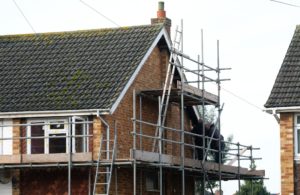Buying a home is one of the most significant purchases you’ll ever make. While it’s exciting to imagine your new space, it’s crucial to keep your finances in check. Here are some fun and practical ways to save money during your home-buying journey.
Know Your Budget and Stick to It
Before you start hunting for your next property, determine how much you can afford. We’ll help you find out what the estimated monthly payments could be on properties, by looking at your exact circumstances and making recommendations tailored to you. This can help you set a realistic budget and prevent you from falling in love with a property that’s out of your price range. Remember, your budget should include not just the purchase price, but also key costs you’re likely to face – be it council tax, any new build estate fees if applicable, insurance, maintenance, and other related costs for example.
Get Pre-Approved for a Mortgage
A mortgage pre-approval, or decision-in-principle, can help to give you a clear picture of how much you can borrow and shows sellers that you’re a serious buyer. This can give you an edge in negotiations and possibly save you from the heartbreak of losing your dream home due to financing issues. If you’re serious about your intentions, talk to us to see how we can assist you in this and get you a step closer to buying your next home.
Get Bespoke Mortgage Advice for Your Exact Needs
We’re experts at giving professional advice to help recommend the mortgage that fits your exact needs. We’ll take time to get to know your latest financial situation to help us to recommend the deals that could give you the solution you need – and we’ll be able to search from a wide range of deals that aren’t available on the high street. Your existing lender will be likely to contact you with offers but be sure to seek our professional advice before making any decisions.
Consider a Renovation Project
Buying a down-trodden property can represent a way to save money if you have the energy for a renovation project and are willing to put in some elbow grease to potentially save some serious money along the way. These homes often sell for less than move-in ready properties, but with some DIY skills and a bit of investment, you can transform a rundown property into your dream home while potentially increasing its value.
The Value of a Thorough Home Inspection
It’s easy to fall in love with a property you’ve found, but it pays to conduct some thorough surveys and inspections of the building before it’s too late. It may seem like an extra expense, but it can save you a lot of money in the long run. A good inspector will identify potential issues that could cost you thousands in repairs. Use this information to negotiate a lower price or ask the seller to fix problems before you close the deal.
Negotiate Everything
Effective negotiation may help you save money along the way – whether it’s the sale price of your dream property, the cost of services or materials to fund a renovation – never be afraid to ask for a deal, you might be surprised at the result!
Negotiation is an art itself, and it’s worth learning about some best practice tips and tricks you can start to use, both in daily life and in scenarios such as buying a home.
Keep an Eye on Hidden Costs
Be mindful of other expenses like moving costs, new furniture, utility deposits, and homeowner association fees or estate fees for new-build homes, for example. Budget for these costs in advance so they don’t catch you off guard. Look for ways to save, such as renting a van instead of hiring a full-service removal firm or buying gently used furniture to cut costs on getting the final look you’re seeking.
Think Long-Term
While it’s essential to find a home that meets your current needs, consider how your needs might change in the future. Buying a home that you can grow into can save you the costs and hassle of moving again in a few years. Additionally, investing in energy-efficient appliances and systems can save you money on utility bills over time.
Final Thoughts
Buying a home doesn’t have to break the bank. With careful planning, savvy shopping, and a bit of negotiation, you can find a home you love without overspending. Remember, the goal is not just to buy a house, but to do so in a way that keeps your financial health intact. Happy house hunting!
All the information in this article is correct as of the publish date 30th May 2024. The opinions expressed in this publication are those of the authors. The information provided in this article, including text, graphics and images does not, and is not intended to, substitute advice; instead, all information, content, and materials available in this article are for general informational purposes only. Information in this article may not constitute the most up-to-date legal or other information.





